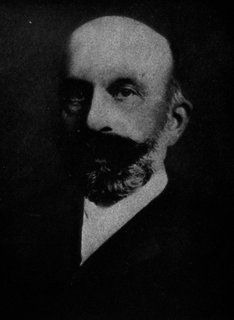A Quote by Ronald Coase
During the two centuries since the publication of 'The Wealth of Nations,' the main activity of economists, it seems to me, has been to fill the gaps in Adam Smith's system, to correct his errors and to make his analysis vastly more exact.
Related Quotes
Mathematicians can and do fill in gaps, correct errors, and supply more detail and more careful scholarship when they are called on or motivated to do so. Our system is quite good at producing reliable theorems that can be solidly backed up. It's just that the reliability does not primarily come from mathematicians formally checking formal arguments; it comes from mathematicians thinking carefully and critically about mathematical ideas.
The ruin of a man's teaching comes of his followers, such as having never touched the foundation he has laid, build upon it wood, hay, and stubble, fit only to be burnt. Therefore, if only to avoid his worst foes, his admirers, a man should avoid system. The more correct a system the worse will it be misunderstood; its professed admirers will take both its errors and their misconceptions of its truths, and hold them forth as its essence.
Accordingly, we find Euler and D'Alembert devoting their talent and their patience to the establishment of the laws of rotation of the solid bodies. Lagrange has incorporated his own analysis of the problem with his general treatment of mechanics, and since his time M. Poinsôt has brought the subject under the power of a more searching analysis than that of the calculus, in which ideas take the place of symbols, and intelligent propositions supersede equations.
The key insight of Adam Smith's Wealth of Nations is misleadingly simple: if an exchange between two parties is voluntary, it will not take place unless both believe they will benefit from it. Most economic fallacies derive from the neglect of this simple insight, from the tendency to assume that there is a fixed pie, that one party can gain only at the expense of another.
For, since the fall of Adam had brought disgrace upon all his posterity, God restores those, whom He separates as His own, so that their condition may be better than that of all other nations. At the same time it must be remarked, that this grace of renewal is effaced in many who have afterwards profaned it
Friedrich Hayek, who died on March 23, 1992 at age 92, was arguably the greatest social scientist of the twentieth century. By the time of his death, his fundamental way of thought had supplanted the system of John Maynard Keynes - his chief intellectual rival of the century - in the battle since the 1930s for the minds of economists and the policies of governments.




































